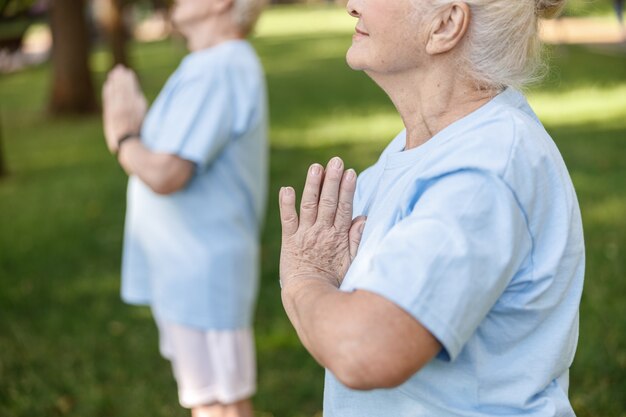How Physical and Mental Health Are Interconnected in Seniors
Aging brings with it a unique set of challenges, especially in terms of health. While we often discuss physical and mental health separately, recent understandings emphasize their interconnectedness, particularly for seniors. Maintaining a healthy body isn't just about preventing physical ailments; it's about nurturing the mind as well. This comprehensive guide explores the connection between physical and mental health in seniors, offering insights into how both aspects of health impact each other and ways to promote overall well-being.
The Two-Way Street: How Physical Health Impacts Mental Well-being
Physical Health: The Foundation of Mental Wellness
Good physical health forms the bedrock of mental wellness. For seniors, maintaining physical health can be pivotal in preventing mental health issues. Here's why:
- Exercise and Endorphins: Engaging in regular physical activity can boost endorphin levels, leading to improved mood and reduced feelings of stress or depression.
- Sleep and Recovery: Adequate sleep, often linked to good physical health, is crucial for memory consolidation, emotional regulation, and overall mental function.
- Chronic Conditions and Mental Health: Chronic physical conditions, such as arthritis or diabetes, can lead to mental stress, impacting one's emotional state.
The Impact of Illness
Chronic illness not only affects the body's functionality but also can have profound psychological effects:
- Functional Limitations: Physical restrictions can lead to a sense of loss, impacting self-esteem and leading to feelings of frustration or depression.
- Pain and Discomfort: Persistent pain can increase vulnerability to anxiety and depression due to its stressful nature.
- Dependence and Isolation: Needing assistance for daily tasks can make seniors feel dependent, fostering feelings of isolation, which is detrimental to mental health.
Health Maintenance as Mental Health Promotion
Encouraging physical health maintenance can also boost mental wellness:
- Nutrition: A balanced diet rich in essential nutrients can enhance brain function and mood.
- Social Engagement: Participating in community activities and maintaining social bonds can provide mental stimulation and emotional support.
The Mental Health Influence: Enhancing Physical Health
Mind-Body Harmony
Mental health significantly influences how we perceive physical health:
- Perception of Pain: Mental state can alter pain tolerance. Anxiety and stress often enhance the perception of pain.
- Motivation for Activity: A positive mental outlook can foster motivation for physical activity, impacting physical health positively.
- Mindfulness and Stress Management: Practices like yoga and meditation can reduce stress levels, improving heart health and reducing blood pressure.
Mental Health Disorders and Physical Health
The presence of mental health conditions can worsen physical health problems:
- Depression: It can lead to neglect of personal health, decreasing physical activity and increasing the risk of conditions like obesity or heart disease.
- Anxiety: Persistent anxiety can manifest physically, leading to issues like headaches, muscle tension, and even heart-related problems.
Cognitive Health and Physical Conditioning
Keeping the brain engaged can have positive physical health outcomes:
- Cognitive Exercises: Activities that challenge the brain, like puzzles or reading, can have a calming effect, aiding in better sleep and lower stress.
- Learning New Skills: Engaging in new activities can foster physical and mental agility, promoting a sense of achievement and improved self-esteem.
Practical Strategies for Balancing Physical and Mental Health
Encouraging Active Lifestyles
Seniors should be encouraged to maintain a physically active lifestyle that suits their abilities:
- Regular Walking: A simple regimen that can improve cardiovascular health and elevate mood.
- Group Classes: Participating in fitness classes can provide an added social benefit alongside physical activity.
- Strength Training: Light resistance exercises maintain muscle mass and improve bone health.
Addressing Mental Health
Encouraging mental wellness is equally important:
- Professional Support: Regular check-ins with mental health professionals can help identify and manage issues early.
- Mindfulness Practices: Techniques such as meditation and deep breathing exercises can help manage stress.
- Creative Outlets: Engaging in activities like painting, music, or writing can be therapeutic and boost mental wellness.
Maintaining Social Connections
Social connectivity plays a vital role in holistic health:
- Community Programs: Engaging in community activities encourages social interactions that enhance emotional well-being.
- Family Involvement: Keeping family connections strong provides emotional support.
- Volunteer Work: Offering time to help others creates a sense of purpose and community belonging.
Summary of Key Strategies 📝
Here’s a quick overview of strategies to foster both physical and mental health in seniors:
- Stay Active: Engage in activities like walking, yoga, or group exercises to maintain physical fitness.
- Eat Well: Balanced diets aren't only about physical health; they're essential for mental clarity too.
- Mind the Mind: Incorporate mindfulness practices to manage stress and promote mental clarity.
- Seek Professional Guidance: Regular check-ups with healthcare providers are crucial.
- Cultivate Relationships: Maintain strong social ties to support emotional stability.
🧘♀️ Wellness Tip: Embrace new hobbies to simultaneously challenge the mind and body!
Recognizing the relationship between physical and mental health helps guide our approach to senior health care. Focusing on both facets encourages a holistic approach that can lead to a fulfilling and healthy later life. With a supportive environment and proactive measures, seniors can enjoy a rich and vibrant life, underscoring the importance of integrated health strategies.

Related Topics
- How To Address Cognitive Decline In Seniors
- How To Address Loneliness In Seniors
- How To Create a Mental Health Care Plan For Seniors
- How To Encourage Seniors To Engage In Creative Hobbies
- How To Encourage Social Interaction In Seniors
- How To Find a Therapist For Seniors
- How To Handle Memory Loss In Seniors
- How To Help Seniors Cope With Grief And Loss
- How To Manage Anger And Frustration In Senior Years
- How To Prevent Isolation In Older Adults
